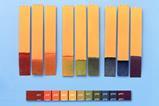A teacher puts the spotlight on unconscious bias towards Western perspectives in education research and encourages teachers to look beyond obvious sources to build a bigger picture

When you think of education research, what names come to mind? Maybe Rosenshine, Bloom, Piaget, Hattie? Chemistry education researchers may be harder to recall but we often refer to Johnstone on conceptual levels, or Keith Taber’s work on misconceptions.
What do these names have in common? To start with they are all men and all White. More significantly, they all worked in the West (although some had collaborations further afield). This means that much of the education research we consume is produced from a Western perspective.
I recently revisited a shared drive of papers for a research project on balancing chemical equations. I was about to share them with an undergraduate student when I realised that they were all from the US, Europe and Australia. I had searched the usual chemistry education titles: the Journal of chemical education (ACS); Chemistry education, research and practice (RSC); and School science review (ASE). Library and other database searches had thrown up more Western science education journals from publishers like Taylor & Francis.
I was ashamed of myself for not recognising my own bias
This dominance of papers from the West didn’t sit well with me. Nearly every chemistry student in the world would have to study balancing equations. Surely there would be research studies produced elsewhere?
I set out to find other perspectives using combinations of search terms in Google and Google Scholar and the results were illuminating. There were papers from Nigeria, Malaysia, Turkey, Ethiopia, Pakistan, Palestine, Afghanistan and Rwanda. I could see lots of papers from teacher trainees in Ghana – balancing equations is a popular topic for their postgraduate teacher qualification action research projects.
We could blame the monolingualism that can undermine many different research areas, but these papers were written in English. Many were published in minor or region-specific journals, like the Journal of Turkish science education. There were also uploads of PhD and Master’s theses, as well as action research projects by individual teachers. My first search had yielded around 20 relevant papers – now I had 90!
Quality versus quantity
Something often highlighted in excusing the dominance of Western perspectives is quality. Western education systems typically have more money to pump into researching educational experiences. Hence, the West generates many papers on all aspects of science education – from innovative laboratory experiments to studies probing student understanding of key concepts.
Putting my peer reviewer hat on, I can say that many of the papers I found in my wider global search would probably not meet the thresholds required for publication in the journals I mentioned earlier. Many of the studies reported were small and there were some instances where the conclusions drawn weren’t robustly supported by evidence. Often, when teaching approaches were described, a follow-up evaluation of their impact on students was lacking. However, I can also see how – with some guidance – these papers would absolutely be worthy of inclusion in higher-profile titles.
Each piece of the global jigsaw creates a more vivid picture. The numerous small studies in various countries add up to robust conclusions. Researchers in Africa are worried about the use of non-specialists teaching key concepts and the effect this has on student motivation. They feel large classes are hindering student progress as teachers are unable to plan more engaging activities that might aid comprehension. Meanwhile, in Pakistan, teacher recruitment issues have also led to large classes and an emphasis on memorisation of equations rather than deeper understanding. Many teachers in the UK can empathise with these concerns.
My own research is grounded in topics that are practitioner focused, so perspectives from teachers in classrooms – no matter where they are in the world – are crucial. After completing this review, I was ashamed of myself for not recognising my own bias. If we are truly to become an evidence-based profession, we need to look beyond western perspectives. Can we really decolonise our curriculum if we don’t decolonise the educational perspectives we’re using?














4 readers' comments